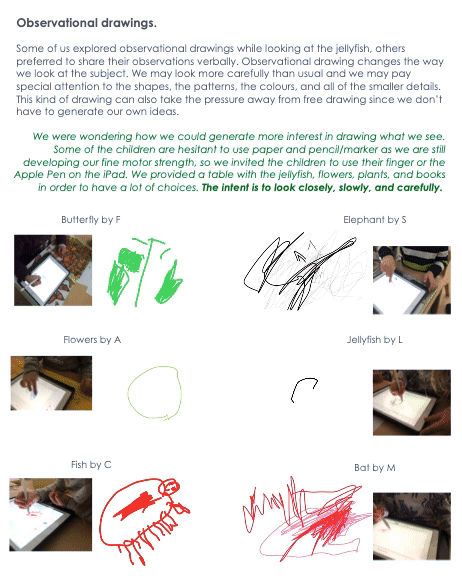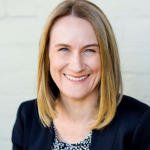LAST but not least: The adaptive work of the teacher
LAST but not least: The adaptive work of the teacher
Jonathan Butcher, Deputy Head,
In dialogue with Anne van Dam and Fiona Zinn.
The adaptive work of the teacher is much to be admired. The acronym LAST – Looking ‘closely’ At Student Thinking, is the prerequisite to: conferring with a child, directing them to take their next steps, modelling strategies and techniques, and creating scaffolds. These are just some of the powerful impacts on learning a teacher has and one would hope that these are not only worthwhile engagements for learning, but also joyful and rewarding experiences for the teacher too.
Carlina Rinaldi, describes documentation as an act of caring, an act of love and interaction. It enacts careful observation, listening to both the voices and the silences, actions and inactions. It facilitates further questioning, so that we can better understand the learner, through what educators in Reggio Emilia refers to as a meaning making process. Documentation can come in many forms: still photography, video/ film, drawings/ writing, or perhaps listening in on self talk/ peer-to-peer exchange/ group discourse.
One should always ask why we are documenting. I believe it has to be learning centric, not driven by the documenter’s guilt, or purpose-lose admin request, or parent pressure to portfolio. The process of documenting learning brings us closer to the learner themselves. In a webinar last year Fiona Zinn reminds us not to interrupt, but to consider – Listening with all senses, to observe, to see how the moments unfold.
Last year I created this documentation panel (Andrea Morgan was the teacher, and images from Aisha Kristiansen). My aim was to create, and model a documentation panel with multiple audiences in mind. The written narrative provides the context for any reader and photograph galleries for our early readers. The educator’s quote qualifies the approach used, together with the pedagog’s metacognition for professional insight of best practice. Publishing the student’s individual expressions advocates for the learner.

This panel work inspired Alanna Mazzon, an exceptions teacher, to work with me in creating an ebook using Apple Pages, following the same layering described above. The ebook allowed the documentation to unfold, be shared electronically, and to contain the multimedia clips that set a deeper context, allowing the reader to experience more.

Above: Excerpt from Alanna’s eBook on Apple’s Pages.
“Documentation is a highly personal strategy, we must take time to explore strategies, to refine our listening and to come to know both documentation and the processes of learning with depth and complexity. Indeed, time, collaboration and reflection are essential travelling companions in the journey toward becoming a better documenter.” Fiona Zinn
“Documentation is such a complex process, so rich in the possibilities it affords to create reflective collaborative learning communities who think deeply about their work alongside young children.” Anne van Dam
In the process of sharing my work, and writing this article, I was fortunate to engage in dialogue with both Anne van Dam and Fiona Zinn, two educators I highly admire. In my role as Principal, I felt responsible to promote best practice amongst my staff, to celebrate our learning and to bring parents on our journey and gain confidence and trust.
However, they point out that whilst the schematic patterns and episodes of childrens play is important, it is their personal belief was that the function of documentation is not to understand the schema of the children or to record what they have ‘done’, but rather “documentation offers something much more valuable:
“the chance to meet and tease apart the ongoing construction of ideas that children’s learning processes bring forth in relationship with others. It offers us a way to see ‘inside’ the learning process and understand the complex strategies children and adults have as they build new knowledge together rather than record ‘what happened’ or ‘what resulted’ at the end or ‘what type of play’ this might be. Documentation is about seeking to understand how (not what) learning happens.” Fiona Zinn
“This process brings us closer to the learner. It is a disposition of research, a curiosity to learn more about learning. It offers us material that we can use to think about how we can support students with their working theories, deepening and adapting their ideas.” Anne van Dam
Our reasons for documenting must be clear and understood by all. Our efforts should be child centric – front and centre.
Looking At Student Thinking (LAST) is a Project Zero routine. Earlier I added the word ‘closely’, borrowing the term from Agency by Design, because it requires a level of sensitivity. In earlier conversations in 2021, Anne Van Dam challenged my thinking by asking me to consider the ethics of listening in. She recalls Carla Rinaldi ‘you are not documenting what has happened, you are documenting your point of view’. Through research I began to consider: Are we quoting the child in the right context? Do we fully understand what we are observing? Does the child consent to our listening in? Have we checked in with the learner and asked for their point of view? An opportunity to model how we respect the rights of a child, to be truly curious in the process. Intentionally I draw parallels to AdD and JusticexDesign (JxD), crediting Jaime Chao Mignano, power and empowerment, as indeed we are designers of content, curriculum and learning experiences, as well as the documenting that comes with this.

Capturing or collecting work samples gives us a volume of data to get to know the learner better, to reflect on how best to support them, and design next steps. I can’t think of an argument against this relational learning; teaching and learning is indeed complex, which is why the partnership between the child and adult is crucial.
Documentation is not exclusive to the work of Early Years, in fact I have tried to disseminate their practises throughout the school. The documentation gathered can ultimately provide compelling evidence of growth that may be reported out. But reporting alone shouldn’t drive documentation. The Harvard LAST protocol guides teachers to raise one another’s awareness, to describe the work, to speculate on the student’s thinking, to ask deeper questions, and discuss implications for teaching and learning. It informs teaching, compliments our conferencing and generates meaningful conversations. Not only have I always found this work valuable, I find it highly rewarding and enjoyable.
I would love to hear from you. What documentation practises work for you? How do you ensure your approach is ethical? Who are your audiences? What is the link between documentation and planning?
But if learning is the driver, I ask about your planning experience. Do you believe it is worthwhile? Is it joyful? One would hope so, and if not, I would suggest the team talked about that elephant in the room. Perhaps this deserves another article? Please share your thoughts below.
BIOGRAPHY
Rinaldi, Carlina. “The RELATIONSHIP Between DOCUMENTATION and ASSESSMENT.” Innovations: The Quarterly Periodical of the North American Reggio Emilia Alliance, NAREA, 2004, https://www.reggioalliance.org/downloads/relationship:rinaldi.pdf
LOOKING AT STUDENT THINKING PROTOCOL: Roles: Presenting Teacher, Facilitator, and Documenter (Optional). Cultures of Thinking Project, 2005 http://www.pz.harvard.edu/sites/default/files/LAST%2Bprotocol_New.pdf
Agency by Design (AbD), Project Zero http://www.agencybydesign.org/
Interested in reading more?
CONSTANT CONVERSATIONS – UNPACKING PEDAGOGY https://unpackingourpedagogy.blogspot.com/
Working with working theories: the teacher’s role:
https://theeducationhub.org.nz/working-with-working-theories-the-teachers-role/
Inquiring minds, meaningful responses: Children’s interests, inquiries, and working theories, Helen Hedges and Maria Cooper (The University of Auckland) in partnership with Daniel Lovatt, Trish Murphy, and Niky Spanhake (Small Kauri Early Childhood Education Centre) and Bianca Harper and Lindy Ashurst (Myers Park KiNZ Early Learning Centre) July 2014
ABOUT THE AUTHORS

Jonathan Butcher holds a M.Ed in International Education, and continues to learn how to maximise learning through meaningful projects. At a time where the world needs compassion, innovation, and action, he is committed to working with others to call for Education for Sustainable Development. Jonathan was the Primary School Principal at Berlin Brandenburg International School when this article was written in 2022. He is now the Principal at Bold Park Community School,

Fiona Zinn is an Education Consultant based in Hobart, Australia. Fiona collaborates with International Schools to re-imagine early years and primary pedagogy, curriculum and learning environments in response to contemporary theory and research. She has a keen interest in collaborating with teachers to develop a ‘shared pedagogy’ as an authentic reflection of their culture, community and context.

Anne van Dam is an educator and educational consultant with a passion for play as young children’s active, complex, vivacious meaning making process. She views documentation as a way to grow as educators as they dig deeper into the threads, ideas and connections underpinning these investigations.
You might also like...
Sustainable Leadership through Altruistic Mentoring
29th July 2024
Taking the long view: Sustainability for global citizenship transformation
28th May 2024
Rethinking Recess: 7 Steps to Foster Engagement and Inclusion
16th January 2025
Why Does Student Voice Matter in the Curriculum?
21st November 2023
Nurturing Student Agency in Secondary Mathematics: Challenges and Opportunities
17th June 2024
